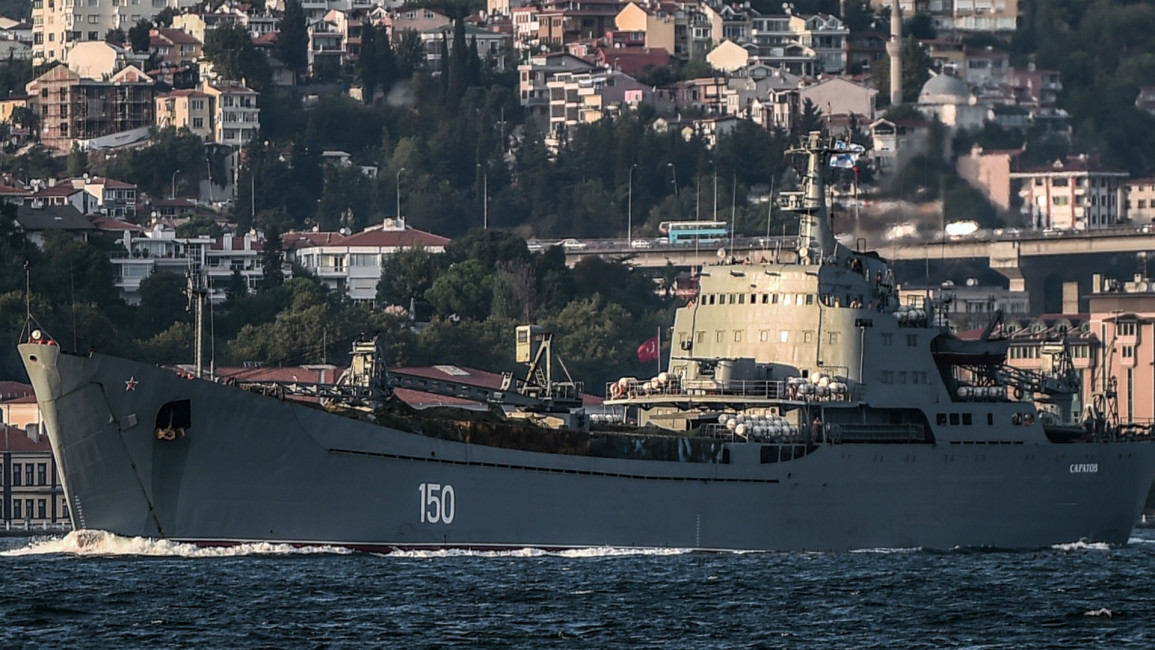Global powers shift views in war against IS
President Vladimir Putin on Tuesday ordered the Russian navy in the Mediterranean to establish contact with its French counterparts and work together "as allies" in a campaign against the Islamic State group in Syria.
Putin instructed his military to work out a joint Russian-French action plan against IS militants as he pushes the idea of establishing a broad anti-IS coalition that would involve both Russia and the West.
"It's necessary to establish direct contact with the French and work with them as allies," Putin told the military top brass at a meeting after French President Francois Hollande said the French aircraft carrier Charles de Gaulle would be deployed to the eastern Mediterranean.
"It's necessary to work out with them a plan of joint actions both at sea and in the air," Putin said, adding that both the chief of the general staff and the defence ministry had received orders to that effect.
The Kremlin said separately that Putin and Hollande had agreed in phone talks to ramp up cooperation and tackle "international terrorism" together.
"It has been agreed to ensure closer contact and coordination between the military and security service agencies of the two countries during operations against terrorist groups by Russia and France in Syria," the Kremlin said in a statement following the phone call between Putin and Hollande.
| Putin and Hollande have agreed in phone talks to ramp up cooperation and tackle 'international terrorism' together. |
The two will further discuss the fight against terrorism in a meeting in Moscow on November 26, the Kremlin said.
Putin has been seeking to capitalise on shifting dynamics in the West following Friday's terror attacks in Paris and the bombing of a Russian passenger plane over Sinai in October, arguing that Russia and the West should unite against a common enemy.
Putin and his Egyptian counterpart Fattah al-Sisi also agreed on Wednesday to "close cooperation" between their security services after Moscow said a bomb brought down its passenger jet over Sinai.
"In the context of the efforts to find the criminals involved in the terrorist act against the Russian airliner, close cooperation was agreed on between the security services of Russia and Egypt," the Kremlin said in a statement after the leaders spoke by phone, adding that the intention was "to realise additional measures to assure the maximum security of air traffic" between the two countries.
Greater engagement with Assad
Spain's foreign minister pleaded Wednesday in favour of engaging with Syrian leader Bashar al-Assad to deal with the terror threat in Europe, just days after deadly attacks in Paris.
"The lesser evil is to come to an agreement with Bashar al-Assad to begin a ceasefire allowing aid to reach the displaced... kickstart a political transition and above all attack our common enemy - Daesh [the Arabic acronym for IS]," Jose Manuel Garcia-Margallo told TVE television.
"We have to replace the 'Bashar yes or Bashar no' discourse by one of peace or war. If you want peace, you are going to have get along with Assad at least on a temporary basis."
"(Former US President Franklin D) Roosevelt was forced to come to an agreement with Stalin to finish with the Nazis, as it was a lesser evil at the time."
Garcia-Margallo said there was still no sign of a concrete European action plan, two days after France used a little-known article in the European Union's Lisbon Treaty rule-book which provides for solidarity in the event a member state is attacked.
France, which has launched new airstrikes against IS militants in Syria, invoked the article after Friday attacks in the French capital left 129 people dead.
"We were surprised as we thought that they would activate another article allowing for mutual aid in case of terrorism," Garcia-Margallo said.
"I think we need to sit down all together and implement a coordinated plan."



